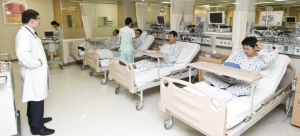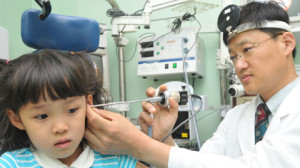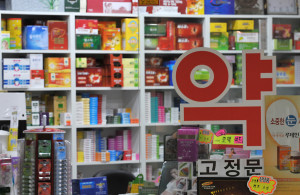
Sick or Ill in Korea: A General Introduction to Medical Care in Korea
Being under the weather is never fun for anyone but it can be an especially crummy ordeal if you’re ill and in a foreign country. From communication barriers to navigating the country’s medical system, being sick abroad comes with more challenges and frustrations than one would like- especially if you’re not at your 100 percent.
Thankfully, Korea has a highly efficient, much-lauded health care system which can easily take care of everything from a cold you’ve caught to treatment for your aching back and shoulders after a big moving day. Below are some basic information, tips, and useful things to know to quickly get you healing and back on your feet.
Please be advised though that the following information is a general overview designed to help introduce hospital care in Korea for non-locals and is not in any way an official guideline of any sort!
Korean Health Care General Introduction
Korea has national health coverage funded by a single payer tax system and is centered on the National Health Insurance Act. Everyone enrolled in the national health insurance pays a premium which is done through either a deduction from your paycheck (and the rest from your employer) or paying directly to the National Health Insurance Corporation (NHIC). For an in-depth look and more information on Korea’s health care system, AAK has a beautiful explanation. 
Under Korean law, all medical procedures (except special/elective ones) are covered by the health insurance. So, in most cases, the patient only has to pay a small deductible for the diagnosis, treatment, and prescription and later on to obtain the medicine. To do so, Koreans only need to provide their name and national ID number but foreigners living and employed in Korea will need to provide their Alien Registration Card. If health insurance is part of your employment, you will receive similar coverage as a national. Note: Don’t always assume just because you’re employed that you are insured. Always thoroughly verify with your employer early on to see if you are covered including checking to see that you are enrolled with the NHIC.
In the case you are uninsured, the hospital/clinic will likely ask to see your passport and still provide medical attention and treatment but without the subsidies in costs. Many common procedures are relatively inexpensive even without insurance but this can all differ greatly on factors such as the medical procedure, number of visits, etc.
For more detailed information about Korea’s national health insurance, coverage, and other important legal and official information for foreigners, check the NHIC homepage.
Korean Hospitals, Clinics, and Specialists
Hospitals
Large to mid-sized hospitals are found throughout larger, major cities and at least a few in other cities. These hospitals can treat everything from medical emergencies to mild or serious diseases. In addition to usually having the best treatment options, facilities, and doctors, many major hospitals have foreign language services and/or translation services available. This is especially true at hospitals that are involved in medical tourism and acclimated to handling and caring for foreign patients.
Almost all locals will agree that the best overall hospitals with the best doctors in Korea are found in Seoul (such as Samsung Hospital or Yonsei Severance Hospital) which is why so many, from all different parts of Korea, wait- sometimes months- to be seen by the doctors at these hospitals for chronic and serious illnesses. Note though that these major hospitals usually have branches in other major cities. If your illness or injury is serious or if there’s something about your health that you have suspicions and want to get checked out thoroughly, head straight for one of these major hospitals where the level of expertise, treatment, and care will (usually) be unparalleled to any other kind of medical facilities in Korea.
Clinics, Specialists, Etc
In addition to hospitals, in Korea there are clinics, facilities, and other professional centers for medical health which most go to for the treatment and care of common and non-life threatening ailments. These are licensed medical professionals operating private businesses and their homepages and facilities should display all relevant information such as licenses, degrees, experience, and professional certifications. Common ailments such as a cold, body aches, rashes, infections, etc, can be seen by a professional and treated at these places relatively quickly and inexpensively-though, again, this depends on factors such as the procedure type.
These places are divided into different categories/specialists depending on your ailment type but are staffed by licensed medical professionals, doctors, and other specialists, and found in most neighborhoods as well as residential and commercial areas. However, these clinics and specialists vary greatly in their ability to communicate with foreigners. If you’re not fluent in Korean or at least unable to hold basic conversations in Korean, please bring along a Korean speaker who can translate between you and the medical professional at these small to mid-sized medical centers.
Some of the different kinds of clinics/specialists include:
- Otolaryngologist (이비인후과 or ‘ee-bee-in-hoo-gwa’) – Also known as an ear, nose, throat specialist, these clinics are where you’ll want to go for such common ailments as a cold, sore throat, allergies, etc.
- Opthalmologist (안과 or ‘an-gwa’) – In addition to checking your vision and other optometric issues, these are the clinics you can go to see for such common ailments as a stye, eye infection, vision problems, etc. Many facilities and doctors are licensed, equipped, and experienced to deal with serious issues and perform surgery
- Dentist (치과 or ‘chi-gwa’) – In addition to dentistry matters, many are also license to treat more serious oral issues and even perform oral surgery. Many also provide cosmetic treatment such as teeth whitening and orthodontic procedures
- Internist (내과 or ‘neh-gwa’)– For internal medicine and treatment. Common reasons to go here include gastritis, stomach infection, digestive issues, etc
- Neurologist (신경외과 or ‘shin-gyeong-weh-gwa’) – Specializing in neurology and matters related to the nervous system. Many also are licensed to provide neuro surgery
- Psychiatrist (정신과 or ‘jeong-shin-gwa’) – For the treatment of psychological and psychiatric matters. Many also deal with other related matters such as dementia in the elderly.
- Orthopedist (정형외과 or ‘jeong-hyeong-weh-gwa’)
- Gynecologist (산부인과 or ‘san-boo-in-gwa’)
- Pediatrician (소아과 or ‘so-ah-gwa’)
- Dermatologist (피부과 or ‘pi-boo-gwa’) – Many also provide a range of cosmetic procedures in everything from botox injections to freckle removal
- Urologist (비뇨기과 or ‘bee-nyo-gi-gwa’)
- Thoracic specialist (흉부외과 or ‘hyoong-boo-weh-gwa’) – These are specialists (surgeons) who focus on issues related to the heart, lungs, esophagus, and other organs in the chest
- Plastic/Cosmetic surgeon (성형외과 or ‘seong-hyeong-weh-gwa’)
- Family physicist (가정의학과 or ‘gah-jeong-eui-hak-gwa’)
- Proctologist (항문외과 or ‘hahng-moon-weh-gwa’) – For treatments of matters such as hemorrhoids
- Oriental medical clinic (한의원 or ‘han-eui-won’)- Including treatment such as acupuncture
Other Tips
- Because many common procedures and services are subsidized by the government, some doctors and professionals may recommend additional or more profitable tests/evaluations and/or procedures than are needed. If you have doubts about the professional(s) and/or health center seeing you, it’s perfectly fine to (kindly) turn down recommended tests or procedures, before they are done, to seek a second opinion for injuries and illnesses that are not immediately pressing
- There are hospital/clinic apps that can be downloaded to map and list out the closest health care facilities to your location. These apps often also includes user reviews/experiences.
- Smaller hospitals and clinics usually do not open on Sundays and close early on Saturdays (usually by mid-afternoon). If your condition is serious, head to the nearest hospital or emergency center
- Smaller hospitals and clinics usually have a special lunch hour between 1-2PM instead of the usual 12-1PM time so plan any visits accordingly
- Some also extend their closing hours in the evening, usually once or twice a week, to accommodate working professionals. You can ask about working hours over the phone, in person, or check their homepage for more information
- What treatments and procedures are and aren’t covered by the national health insurance differs which can make a big difference on your final bill. Always ask if you’re unsure
- If you’re prescribed anything after your hospital/clinic visit (such as medicine) there are usually a few, if not at least one or two, pharmacies in the immediate vicinity (sometimes the same building)

- Pharmacies are called ‘약국’ (yak-guk) and are usually recognized by signs that simply read ‘약’. Take your prescription, hand it to the pharmacist, receive what you need and directions on how to take/administer the medicine (and how often), and pay
- Pharmacies are also great to stop by and ask for some non-prescription medication, tonics, and other medical supplies. Just let them know your symptoms and/or what you need. The medicine won’t be as strong as prescription medicine but it can work in a pinch if your illness/injury isn’t too serious
- Like hospital apps, there are Korean pharmacy apps that can be downloaded that maps out the closest pharmacies to your immediate location
- In any medical emergencies that requires immediate attention, the national number to call is ‘119’
